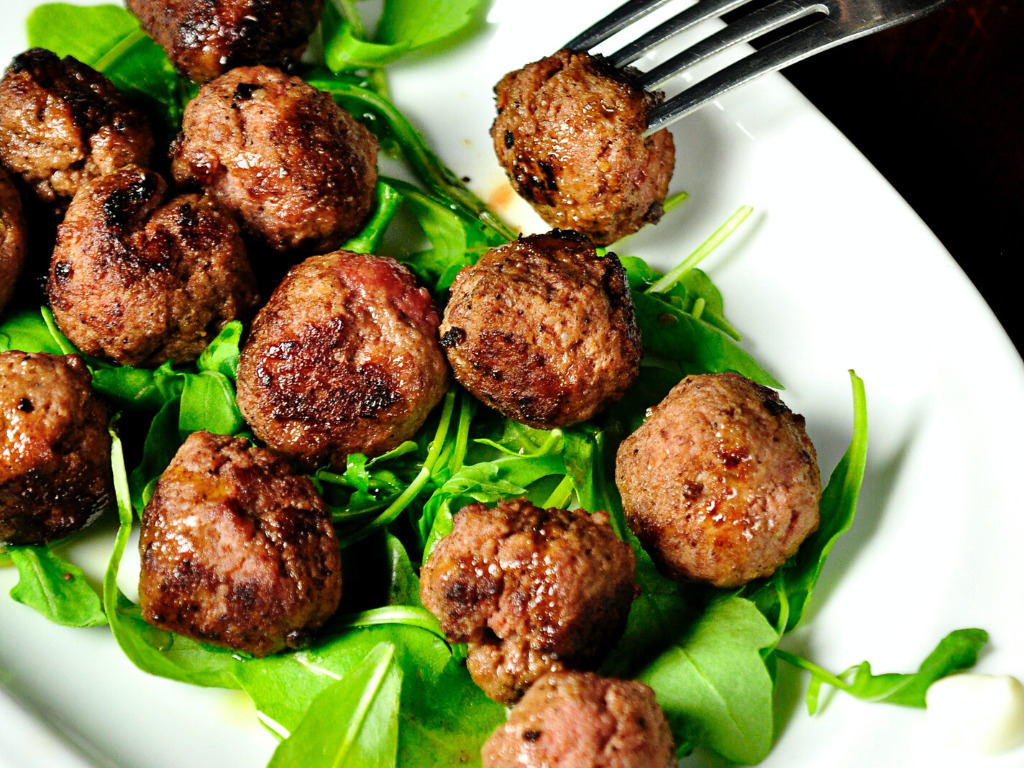Chinese Researchers Say They Can Produce Cultivated Meatballs At Scale
3 Mins Read
Meatballs made from cultured meat are ready for commercial scale—and they’re more nutritious than conventional meatballs, say Chinese researchers.
Researchers from Tsinghua University and Nanjing Agricultural University say they have produced a “cell factory” that can make cultivated lab-grown meat at a large enough scale to take to market. Their findings are published in the recent issue of the journal Biomaterials.
The research
According to the researchers, they have developed a 3D gelatin-based “micro-carrier” that can serve as the scaffolding for cells. They grew pig muscle cells and fat separately, then combined them in a 3D printed molding to produce the pork-based meatballs. They say that can increase the cell expansion by 20-fold per week.
“Such meat engineering method enables robust and scalable bio-fabrication of ground meat alternatives such as meatballs or sausages, which may innovate the future meat menu,” the researchers said.

A number of cultivated meat producers have recently announced cost-reducing measures, namely the replacement of the fetal bovine serum (FBS) medium. Dutch-based Meatable, which announced its first lab-grown sausage earlier this week, said it was achieved without FBS. In January another Dutch company, Mosa Meat, made details of how it replaced FBS public in the journal Nature Food.
“This is really a milestone for us and for the cultivated meat field, because there’s no method out there that describes the differentiation of primary satellite cells if you don’t want to use FBS or genetically modify your cells,” Mosa Meat scientist and corresponding author on the publication, Dr. Joshua Flack, said in a statement.
California-based Upside Foods has built a facility that it says can make 400,000 pounds of cultivated meat a year. Taking production to that scale also reduces costs.
Dr. Konrad Müller-Auffermann, Senior Director of Engineering at Upside called the facility a “game-changer” both for the company and the food system. “I’m so proud of our team for helping to define the future of food, and I can’t wait to share our delicious, real meat with the world,” he said last year.
Cultivated meat vs. conventional
Cost hasn’t been the only barrier to entry; cultivated meat has only received regulatory approval in Singapore to date. While its approval in the U.S. is expected within the next year, manufacturers also face challenges with public perceptions and scrutiny over the tech even despite its lower environmental footprint.

According to the researchers behind the new lab-grown meatballs, there may be another upsell that gets consumers excited about the tech: the cultivated meatballs are healthier, they say.
When compared with conventional Chinese pork meatballs in shizitou, a classic regional dish, the ones grown in a lab were higher in protein and lower in fat.
“Therefore, engineered PSC [muscle satellite cell] meatballs can be a nutritious alternative for ground pork products,” the researchers said.




